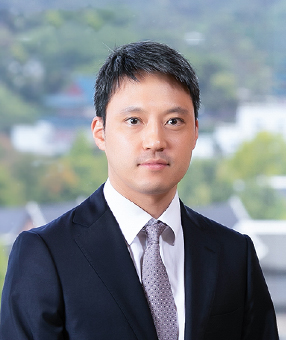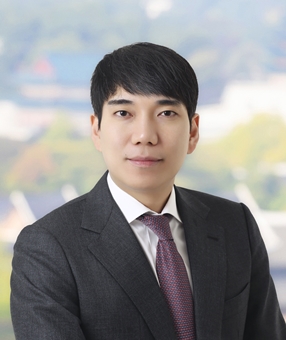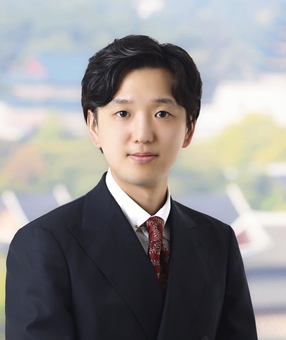The Supreme Court handed down a groundbreaking decision regarding the issue of whether royalties for the use of patents not registered in Korea constitute domestic source income taxable in Korea under the Korea-U.S. Tax Treaty (hereinafter the "Treaty") (Supreme Court en banc Decision No. 2021Du59908 rendered on September 18, 2025). The en banc Decision overturns previous Supreme Court precedents dating back to 1992 (Supreme Court Decision 91Nu6887 and 2012Du18356, etc.), in which royalties paid by a Korean tax resident to a U.S. tax resident for the use of patents unregistered in Korea have been consistently determined not to constitute Korean source income under the Treaty. According to the Court's new holding, if royalties are paid in consideration for use in Korea of patented manufacturing methods, technology, information, etc. ("Patented Technology"), regardless of whether the relevant patents are registered in Korea, the royalties constitute Korean source income and are subject to Korean withholding taxes.
Background of the Case
In June 2011, U.S. Corporation A, an NPE, filed a patent infringement lawsuit against Korean Corporation B in the U.S., which was eventually settled on December 23, 2013, on the condition that Korean Corporation B would enter into a worldwide license agreement with U.S. Corporation A, and would pay royalties for 40 patents registered in the U.S. Korean Corporation B subsequently paid corporate withholding tax on the royalty payment to the Korean tax authority for FY 2014.
On June 9, 2015, Korean Corporation B filed a request for correction seeking a refund of the withheld corporate tax from the Korean tax authority (the NTS), on the ground that the royalty was consideration for the use of patent rights not registered in Korea, and thus did not constitute domestic source income. However, the NTS rejected the request for correction, so Korean Corporation B sued the NTS on February 25, 2019.
The High Court followed previous Supreme Court precedents and eventually ordered the NTS to rectify the taxation on the ground that the royalties at issue were payments for patents not registered in Korea and did not constitute Korean source income. (Suwon High Court Case No. 2021Nu10237 decided on November 5, 2021.)
Supreme Court Precedents
Unlike Korea's tax treaties with many other countries, the Korea-U.S. Tax Treaty provides that royalties are treated as income sourced in one of the Contracting States only if the royalties are paid for the use of, or the right to use, property within that Contracting State. In determining whether a patent right is "used" in Korea, the Supreme Court previously looked at whether the patent was "licensed within the territory where the exclusive rights on the patent are in effect," rather than whether Patented Technology under the patent was actually used in Korea, applying the principle of territoriality of patent rights. The Supreme Court reasoned that since patent rights are "effective" only within the country of registration, patent rights that are not registered in Korea cannot conceptually be "used" in Korea, so royalties paid in consideration for the use of patents not registered in Korea could not constitute Korean source income in the context of the Treaty.
Notably, on December 26, 2008 the Korean government specifically amended a provision of the Corporate Income Tax Law (the "CITL") (Article 93, Subparagraph 8 of the former CITL cited in the Supreme Court en banc Decision) to include a provision that "if a patent, etc. has been registered overseas and has been used for manufacturing, sale, etc. in Korea, such patent, etc. shall be deemed to have been used in Korea regardless of whether it was registered in Korea," but the Supreme Court has consistently ruled until now that royalties for patents not registered in Korea under the Treaty do not constitute Korean source income (Supreme Court Decision No. 2012Du18356).
Summary of Supreme Court en banc Decision
The Supreme Court's en banc decision specifically took the position that the meaning of "use" in the Treaty should be interpreted in accordance with the CITL, given that the Treaty does not expressly define the term. As such, based on the language of Article 93(8) of the former CITL ("patent rights shall be deemed to have been used in the Republic of Korea, irrespective of whether they were registered in the Republic of Korea, if the relevant patent rights were registered overseas and have been used for manufacture, sale, etc. in the Republic of Korea"), the Court held (i) that the "use" of a patent right should be deemed to mean the use of the Patented Technology subject to the patent right, not the use of the patent right itself, and (ii) that even if the patent right is not registered in Korea, the relevant royalty income constitutes Korean source income if the related Patented Technology is used in Korea. Therefore, the Supreme Court held that the lower court's decision was unlawful as it did not examine whether the Patented Technology was used in Korea, even if the patents were unregistered in Korea.
The Supreme Court reasoned as follows:
- A treaty must be interpreted in good faith in light of the text and the subject and purpose of the treaty, including the recitals and annexes, in accordance with the ordinary meanings given to the text of the treaty, but it was difficult to find a basis in the text of the Treaty, agreements related to the Treaty, records of negotiation, the circumstances at the time of execution, and the context of the Treaty, to rule out that a patent unregistered in Korea can still be used domestically, or that royalties might be paid for such use.
- Article 14(4)(a) of the Treaty defines "royalties" as consideration for the use of various intangible assets, including both intangible assets that require registration as a requirement for creation of rights, such as patents, designs, and utility models, and intangible assets that do not require registration to have force, such as copyrights, secret processes, knowledge, and functions. Therefore, "use" should be considered the "use" of technology or information, etc. that make up the contents of intangible assets, and not the "use" of a right that has an exclusive effect through registration, since only this interpretation would apply to all intangible assets.
- The Supreme Court has previously considered the "actual use" of technical information comprising intangible assets in Korea as the basis for determining domestic source income with respect to royalties on intangible assets that do not require registration such as know-how, while it has used the territoriality principle as the basis for the meaning of "use" only for patents not registered in Korea. However, the territoriality of patent rights only means that the domestic use of Patented Technology does not constitute infringement of overseas patents in Korea. The principle of territoriality of patent rights neither blocks the payment of royalties for the use of Patented Technologies because they have no property value, nor restricts the execution of contracts for the payment of royalties for the use of Patented Technologies not registered in Korea under the principle of freedom of contract.
Who bears the burden to prove domestic use of patented technology?
The minority dissenting opinion to this en banc decision pointed out that the burden of proof for the existence of taxation requirements lies with the NTS, so therefore the burden of proof of use of Patented Technology that may be in the scope of patent rights not registered in Korea also lies with the NTS. However, understanding Patented Technology may requires a high level of expertise, and proving the use of Patented Technology can be a very difficult task even with the help of an expert, so whether the NTS can fully prove this in practice is doubtful.
The concurring opinion stated that after this ruling, a situation will arise where domestic source income and foreign source income must be distinguished according to the new criteria set by this decision. However, the concurrence said the criteria for allocating the burden of proof of the existence of domestic source income should be established sequentially in the future in practice, and are not an issue directly addressed in this case, while presenting an exemplary set of criteria for allocating burden of proof referring to the US model. After the NTS proves that Patented Technology included in the scope of patent rights not registered in Korea is actually used in Korea, the entire royalty income for the patent is presumed to be domestic source income, and the taxpayer must then prove that part of the royalty is foreign source income.
Implications
The Supreme Court's en banc decision is expected to trigger fierce disputes in the lower courts, including the proceedings for the cases reversed and remanded by the Supreme Court, concerning whether Patented Technology at issue is "used in Korea" and how much of the royalties are paid as "consideration for use in Korea." For example, if a number of patents unregistered in Korea are involved, key issues would be which of the Patented Technologies are actually "used in Korea" and how much of the royalties should be treated as consideration for the "use in Korea" of the Patented Technologies. In the remanded case, how effectively the taxpayer or the tax authority can argue and prove these issues will be a key.
At the same time, the en banc decision further emphasizes the need for taxpayers to closely review the tax withholding provisions of patent royalty agreements they seek to enter into with U.S. licensors. The following are potentially important negotiation terms and conditions when entering into a patent royalty agreement: whether to specify the consideration for domestic use of patents not registered in Korea; the criteria for allocation thereof; and which party between the Korean licensee and the U.S. licensor should bear the burden of taxation based on the use of a patent that is not registered in Korea or the risk of a dispute. Further, it is expected to increase the need to seek alternative dispute resolution procedures for resolving withholding tax issues, such as Mutual Agreement Procedures between the competent authorities of the US and Korea.
As a result of this en banc Supreme Court decision, a new tax criterion for patents has been established, and Korean licensees and U.S. licensors that have entered into patent royalty agreements face potential tax risks. To effectively address these complex issues, careful and comprehensive discussions with tax experts and intellectual property experts are required.
Related Topics








